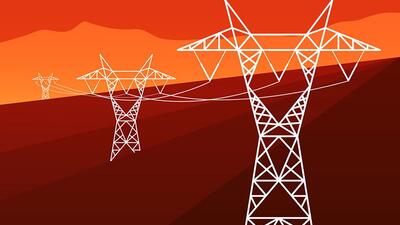Authored by Pierre Gosselin via NoTricksZone.com,
Germany’s massive, subsidized expansion of electricity generation from renewable sources has squeezed out conventional generation units out of the market. Two experts warn of growing grid instability.
The conclusion of the two is very alarming. Here, too, not a word about “storage facilities galore. Here, reality clashes with the wishful thinking of some green energy protagonists who think there is enough storage and that all that needs to be done is to change the “mindset,” as Patrick Graichen put it.
The continued expansion of highly volatile renewable energy sources and the further displacement of more conventional generation units from the market are making the power grid increasingly sensitive to weather-related fluctuations. Unusual weather phenomena such as dark doldrums pose significant challenges to the security and stability of supply to the power grid. The largely intermittent output of solar and wind farms does not correlate with fluctuations in electricity demand.
The excess supply of renewable energy should be buffered during periods of low electricity demand, and the stored capacity should be injected back into the grid during periods of high electricity demand when fewer renewable sources are available. However, large battery energy storage systems, which have been promisingly announced, are still not on the horizon due to their low capacity and maturity, as well as their exorbitantly high cost of deployment.”
At this point, at the latest, some people’s ears should be ringing:
As long as economic energy storage systems are not established, even proponents of the current direction of Germany’s energy transition will have to admit that reliable conventional power plants will be needed for a long time to come.”
This article is also an urgent reading recommendation for politicians and experts who like to be interviewed.
The authors also conclude:
The importance of nuclear power plants for security of supply in base-load operation and their and their ability to operate the grid in parallel with renewable renewable energies have been demonstrated. The nuclear power plants appear to be well suited for the energy made to achieve the future goal of carbon-free power generation. However, the Atomic Energy Act foresees an early end to nuclear power generation by the end of 2022.”
So without nuclear power in Germany, grid stability problems are a future certainty.
[Commentary: Thanks to the Go Green Club]



